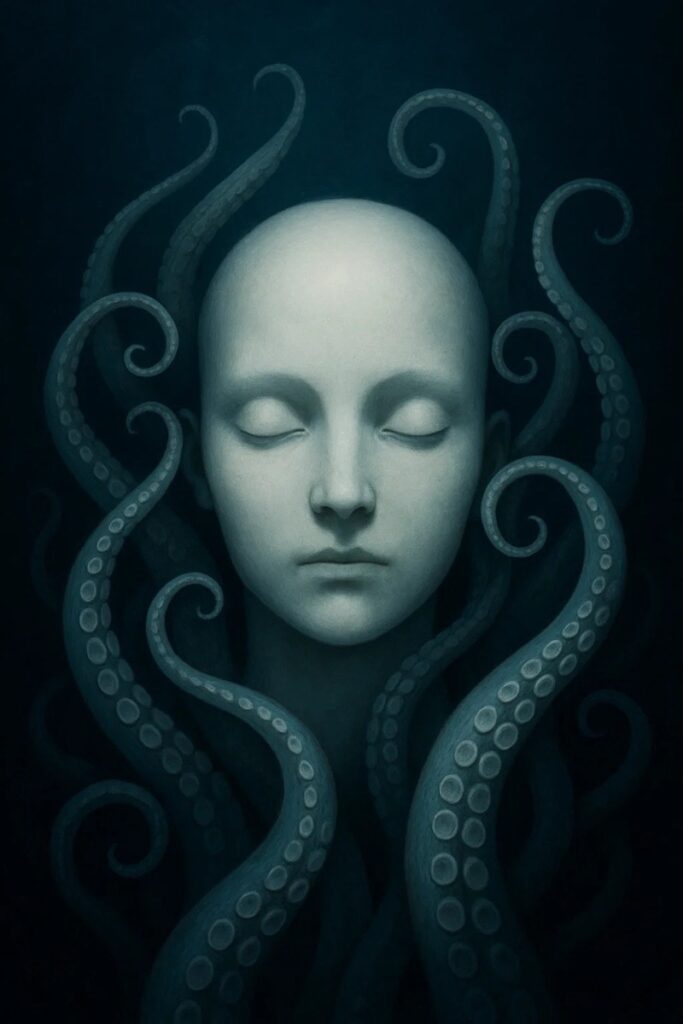She called it hunger, but that was a charity, a mercy. A simplification. What she meant was need, but deeper—need without an object. Thirst without water, desire without the hope of touch.
It started young. She remembered sitting in the pantry at six years old, chewing the corners of cardboard boxes. Her mother scolded her for it, but the cereal inside never mattered. The box had shape. Texture. A dryness and a roundness that she needed to understand with her teeth.
The hunger never went away.
She tried other things as she got older. Salt, licked off her skin, from the inside of her elbow. Clay, once. A spoonful stolen from an unguent meant for some mystical youtube solution to imagined problems.
She ate, of course, but that was never what she really wanted.
She dated men, and sometimes women, and once someone who was both and neither. They all tasted like new dust or ancient hope. Not bad. Just not it.
The hunger remained. Vague. Lingering.
Unsatisfied.
Insatiable.
She went to therapists. They didn’t know what she meant when she said she was starving in a house full of food.
She didn’t tell them about the dreams.
A presence visited her sometimes in the between hours of sleep. Its body shimmered, boneless and undefined, more suggestion than flesh. Its voice came from beneath her building. It offered no comfort. Only presence.
“Still hungry?” it asked once.
She nodded in the dream.
“Good,” it said.
Over time, she realized she was meant to be hollow. That the hunger wasn’t a flaw—it was a keyhole. It was the shape of something waiting.
Waiting to be filled.
Her hunger was the shape of what she would become.
Her hunger was her existence, her existence was to be her absence.
She began to write it down. Little entries in a black notebook: descriptions of what the hunger felt like. Never what it wanted, because it never wanted—it simply was.
People started finding her writing. First online, then in print. They wrote her letters. Emails. Sent her boxes filled with strange things: stones shaped like tongues, pencils too short to be written with, candy wrappers that had been scrubbed clean and sterile.
They said things like: “I know this hunger. I thought I was the only one.”
She never responded. She couldn’t. They were trying to name something unnameable.
She knew better.
Absence has no name of its own.
It is named only for what it is not.
One day, she stopped eating. Just to see.
And the hunger… shifted.
Not faded. Not sated. Never sated.
It changed flavour.
She understood, then, what it had been waiting for. Not food. Not love. Not meaning.
It wanted devotion.
Not to her. Not for her. Not of her.
From her.
To it.
So, she offered herself. Not in death—but in voice, in story, in acts of meticulous subtraction.
Each day, she removed one thing from her life. A mirror broken. A shirt shredded. A memory forgotten.
She documented it all.
And when she disappeared entirely, there was no funeral. No-one left in the absence of her life to memorialise her.
Only her words remained, scattered fragments, left behind like fingerprints on fogged glass.
Across the world, others began to feel it.
The hunger.
One by one, they came to realised that they’d always known its taste.
Perhaps. Now, you do too.
Do you?
